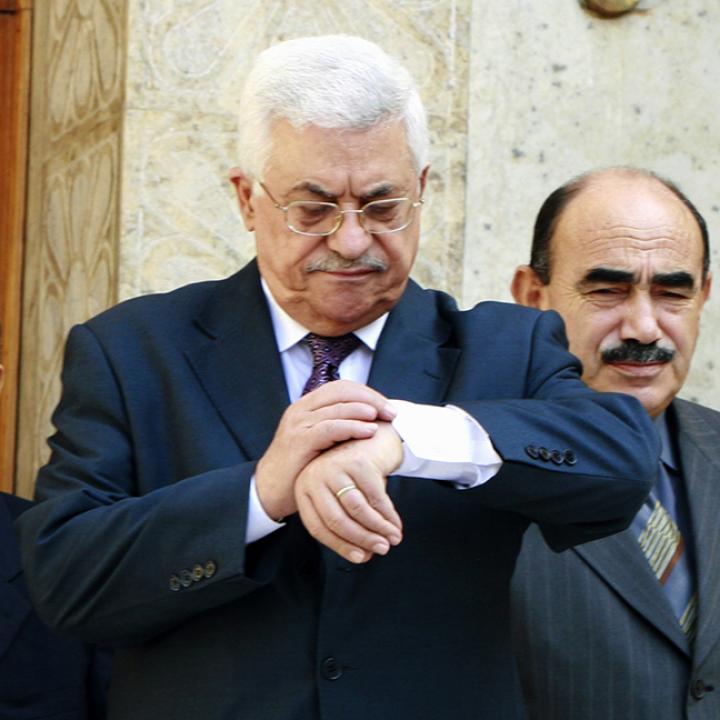

While the occasion of a Palestinian leader addressing the council was novel, the speech itself was classic Abbas: balancing his domestic need to appear defiant, but avoiding irretrievable diplomatic damage.
In a first for the Palestinian Authority leader, President Mahmoud Abbas addressed the UN Security Council today, offering remarks that addressed two distinct audiences: the Palestinian public and international diplomats. For his home audience, he reiterated the traditional Palestinian narrative and grievances, emphasized his unwillingness to compromise on core Palestinian interests, and repeated his rejection of the U.S. decision to formally recognize Jerusalem as Israel's capital. For international listeners, he repeated his commitment to a two-state solution, his willingness to negotiate, and his rejection of violence. He also presented a peace plan that does not deviate much from previous PA proposals, then demanded a multilateral framework and a timeframe for reaching an agreement.
While addressing the council would have been a good opportunity to retract claims he made on January 15, when he denied the Jewish connection to Jerusalem, his speech fell short. Instead, he stated that the future Palestinian capital in East Jerusalem will be open to Muslims, Christians, and Jews.
Bluster aside, the speech indicated Abbas's intention to maintain his current diplomatic course. Although he called for an international conference, there is very little chance of that happening—the very model he cited, the January 2017 Paris Peace Conference, demonstrated how untenable that approach is. In reality, he seems set on energizing an international approach that entails confronting U.S. diplomacy without crossing U.S. redlines.
Specifically, he indicated that he will once again try to obtain a Security Council vote to admit Palestine as a full UN member. That plan is bound to fail—even if it garners the necessary nine votes, which it has failed to do in previous attempts, the United States would veto it. Yet Abbas likely believes that an American veto would still work in his favor, allowing him to exhibit defiance to his public.
His speech also mentioned seeking Palestine's entry into more than 500 international organizations and treaties. Even on this front, however, he avoided measures that would force Washington's hand. By law, the U.S. government is obligated to cut funding to any UN agency that admits Palestine as a full member, as happened to UNESCO years ago. To avoid a repeat of the UNESCO situation, Abbas said he would not join twenty-two similar agencies that would trigger mandatory U.S. cuts.
Regarding actions on the ground, Abbas hinted that he will not implement last month's Palestinian Central Council decision demanding the severing of relations with Israel. Although his speech was replete with criticism of Israel, he nonetheless stated his commitment to maintaining the PA's "institutions and achievements." Indeed, Palestinian-Israeli security cooperation has continued since the Central Council decision, and high-level civilian officials have held numerous meetings.
In short, while the occasion of a Palestinian leader addressing the UN Security Council was novel, the speech itself was classic Abbas: balancing his domestic need to appear proactive and defiant, but avoiding irretrievable diplomatic damage. He will likely meet the bare minimum on both points without satisfying either audience. And despite the heightened rhetoric and diplomatic posturing of late, he has yet to find a way out of the current stalemate.
An American peace plan may tip the balance in favor of returning to negotiations, but it would need to meet Israel and the PA's minimum requirements. It would also need to be coordinated in advance with Arab and international allies in order to address their needs and recruit them in the effort to influence Abbas. Short of that, a U.S. plan may end up tipping the balance in the opposite direction.
Ghaith al-Omari, a senior fellow at The Washington Institute, previously served in various advisory positions with the Palestinian Authority.



